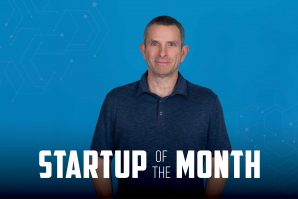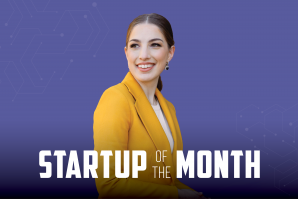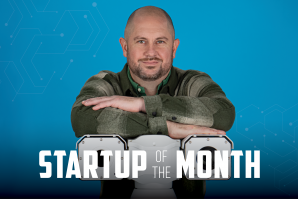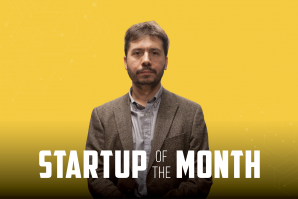Since the 1950s, plastic has been a staple due to its durability, but an unseen byproduct of this material is microplastics. These microscopic particles can be found everywhere, from Antarctica to Mt. Everest to breast milk.
“The volume of plastics has increased every year,” says Steve Barnett, co-founder and CEO of Soar Optics, an Elk Grove company developing technology to identify microplastics in water. “Plastics are great because they don’t degrade, but they are also a problem since the microplastics produced from these products do not degrade either.”
In 2018, the California Legislature tasked the California State Water Resources Control Board to come up with methods to detect microplastics in drinking water and other environmental areas. This led to a state-funded study with about 30 research groups. Barnett, who was a part of this cohort, says the recommended methods were better than nothing but limited in their scope, speed and cost.
Separately, he had submitted a patent application for a new type of rapid chemical imaging, which he realized could be used to improve microplastics detection. Barnett, a chemist by training, has had a company selling chemical and material analysis products since 2010. Soar Optics is an offshoot of that, he says.
The detection tool looks essentially like a microscope. Based on a technique called Raman spectroscopy, the technology uses a laser to illuminate microplastic particles that have been filtered from a water sample. Analysis of the scattered light is used to determine their chemical composition. In the future, Barnett says, the technology can be modified to detect microplastics in wastewater, soil and food.
“I’m essentially combining two technologies that have never been used together before,” Barnett says. “The rapid scanning has been around for a while with simpler detection methods. Independently, the two technologies were out there, but they’ve never been put together to leverage this rapid detection.”
The startup was a Western Regional Winner in 2022, which Barnett says helped the company refine and validate its concept and direction. That same year, within a month of forming, Soar Optics also got into the clean technology accelerator, Cleantech Open, chosen by Lou Bendon, retired president of Flycatcher Marketing. Bendon, who spent the past 20 years as consultant within the water industry, says Soar Optics stood out because Barnett had a fresh idea and a flexible mind.
“What I liked is that he was open to suggestions,” Bendon says. “Many times you run into entrepreneurs in the early stage and they’re close-minded. They think they know everything. Steve was willing to adapt and adjust once confronted with argument.”
As noted, the big issue with microplastics has to do with being able to identify, isolate and measure them in water systems. Soar Optics has come up with a solution for utilities to accomplish this without sending samples to a lab and waiting for the results. From the utilities perspectives, detailed fast reporting is critical to how they run their business, Bendon says, and the Soar Optics solution would make the whole operation more efficient.
“I believe their model of removing the burden from the utilities to test and report to state regulators is a brilliant model,” Bendon says. “It solved a problem, makes cost predictable and projectable for water agencies, and creates long-term revenue for Soar.”
Right now, the Soar Optics team of four aims to take this seed-stage company to the next level. Feedback in the water monitoring community has been positive, Barnett says. Funding will support the development of a prototype.
“We’re putting the pieces in place and have to do proof of concept measurements,” Barnett says. “But we’re getting good feedback across the country from those involved in this field. They think our ideas make a lot of sense.”
–
Stay up to date on business in the Capital Region: Subscribe to the Comstock’s newsletter today.
Recommended For You

Startup of the Month: Inspirame
College and career navigation platform aims to repair education pipeline
In 2019, CEO Maria Medrano co-founded the equity-driven startup Inspirame to repair these critical gaps in college enrollment and workforce development.

Startup of the Month: AgriNerds
Mapping tool helps farmers track carriers of bird flu
In recent years, avian influenza (or “bird flu”) has been on a rampage, wiping out wild and domestic birds, disrupting the environment, and causing a shortage of eggs and poultry meat. The Davis-based startup AgriNerds aims to help farmers to identify potential risks and protect poultry against the threat of diseased ducks.

Startup of the Month: 3D Organic Polymer Silk
Trio of researchers aim to revolutionize orthopedic medicine with spider silk
With over 3 billion years of evolution under its belt, the natural world has a pretty long track record of creativity. Knowing this, three interdisciplinary researchers at UC Davis looked to the golden silk orb-weaver spider to develop an innovative biomaterial.

Startup of the Month: OnSight Technology
Company deploys robots to detect issues on solar farms
After years in the solar farm industry, Derek Chase was looking into different drone companies to handle aerial flyovers. But he found these companies couldn’t provide the information he needed, which was found on the ground, under the panels, where the wires are.

Startup of the Month: Botanical Solution Inc.
Lab-grown plants offer key compounds for crop protection, vaccines
Grown in a lab from raw materials, so-called “baby trees” could be essential for protecting not only the future of fruits and vegetables, but also people. This is the aim of Botanical Solution Inc., a Davis-based ag tech startup with global roots.

Startup of the Month: RePurpose Energy
Fairfield startup puts sustainable spin on retired EV batteries
For an old electric vehicle battery, retirement doesn’t mean the end of the road. This fact was the catalyst for RePurpose Energy, a Fairfield-based startup that converts retired EV batteries into renewable energy storage systems.




